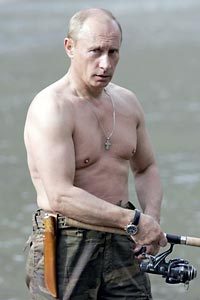Peace Movement Aotearoa is running a white poppy campaign as a fund raiser for its activities. It is doing so one day before the RSA red poppy appeal. Some think the timing is unfortunate in the extreme. Others denounce PMA as “parasites.” I beg to differ.
There are obvious freedom of opinion and speech issues involved, all of which must be resolved in favour of the PMA no matter how misguided they may be or how they may be piggy-backing on the veneration of the sacrifice at Gallipoli. But that is exactly why the white poppy campaign should be respected.
The red poppy campaign is a recognition of sacrifice that, although in service of a foreign master and resulting in (tactical) defeat, was a prime example of the measure of the Kiwi spirit. It is to be honoured, which is why I, as a foreigner, have attended ANZAC day celebrations. But I also respect the white poppy campaign.
That is because there is the offically unrecognised aspect to ANZAC celebrations, which is the futility and subserviance of the heroic sacrifice by so many of New Zealand’s best (and not so best) men of the day. To be honest, many died in vain. In the larger scheme of things Gallipoli was not strategically decisive. That war was not fought in defense of democracy and freedom.
Therein lies the justification for the white poppy campaign. Along with the red poppy recognition of sacrifice, it is entirely fair to recognise the futility of NZ involvement in some wars and to campaign against any such future involvement. I tend to believe that WW1, WW2 and Korea were just wars (look at North Korea now if you think that was an unjustifed conflict), and NZ involvement in the liberation of Timor Leste is commendable, but the point of the white poppy campaign is to underscore the fact that NZ, as a sovereign and independent nation, can now pick and choose its fights when it does not involve defense of the homeland. Although they may not realise that NZ has to pay its international security dues in order to receive international protection against foreign invasion (however improbable that scenario may be), the PMA crowd are perfectly correct in choosing to parallel their campaign of reflection alongside the recognition of ANZAC sacrifice. Put another way–how many Kiwis have died in a war of NZ’s choosing? It may be true that sometimes “you gotta do what you gotta do,” but when it comes to war, sometimes you have to recognise that you do not have a dog in the fight.
Of course this hurts the ANZAC veterans (or their descendents) who choose not to acknowledge that freedom of expression, governance and worship  is not what Gallipoli (or Vietnam) was about–it was about great power quarrels fought in areas of the global periphery with military-strategic importance.  Thus,  if the mythological claims of defense of freedom are to be honoured, then the white poppy campaign should be welcomed along with its red poppy counterparts. After all, it is difference of opinion that makes the defense of freedom so fundamental to the democratic ethos. Although it may not have been at play at Gallipoli, it sure is when it comes to respecting the rights of the white poppy campaigners.
I therefore honour the ANZACs for their (often unthinking) sacrifice. And I respect the PMA for their thinking opposition to war, however much I believe sometimes war is necessary ( if nothing but on lesser evil grounds).
As for the maori component of this sacrifice and current opposition, I defer to Lew.
>>Written from Greece, where democracy is clearly showing strains but in which the right to voice is sacrosanct.<<

 Via Scott Yorke’s excellent
Via Scott Yorke’s excellent